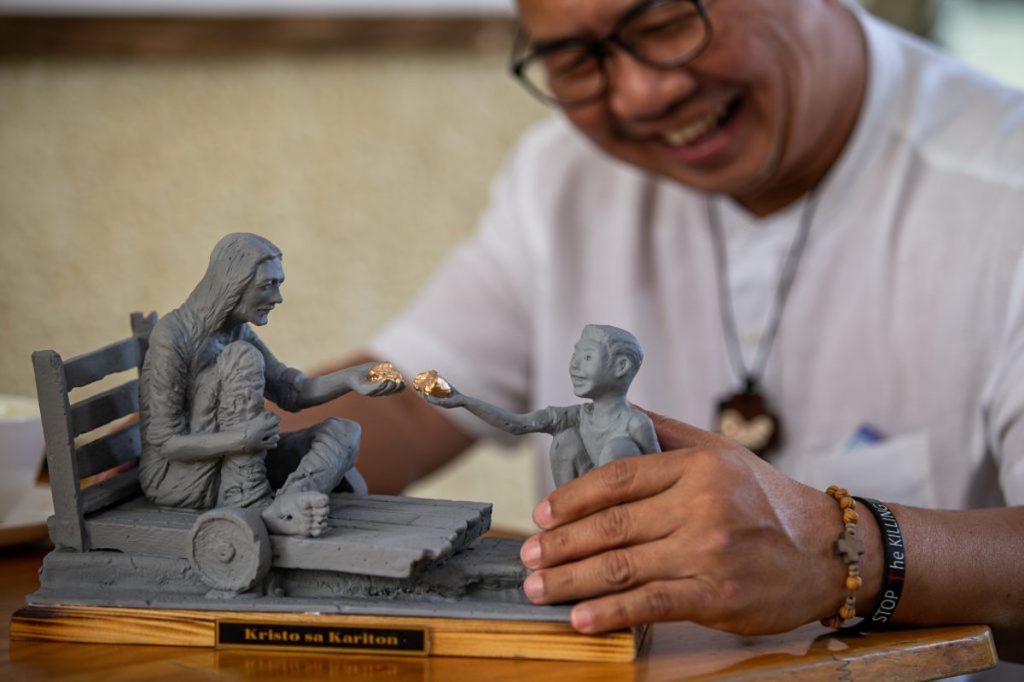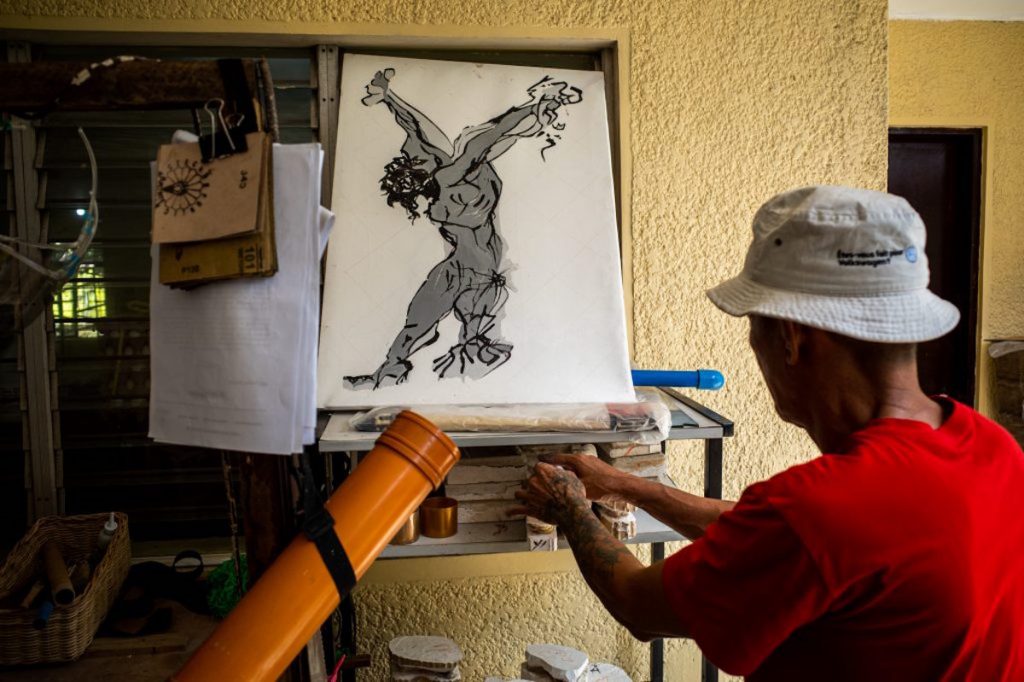Carlito Quiambao lost his job in construction company last year due to the global health crisis. He ended up in the streets of Manila and went back to drinking.
He would drown his sorrows by spending every centavo in his pocket on a bottle of alcohol. Drunk, he would blame everyone, including God, for his situation.
He distanced himself from family and friends and refused to go back home to the province where his wife and children wait. “Not yet, not in this condition,” he would say.
In April last year, Carlito came across the Arnold Janssen Kalinga Foundation in Manila’s Tayuman district. The place provides free hot meals and bath to homeless people.
The center, which is being run by the Society of the Divine Word congregation, provided temporary shelter to the homeless as the government declared a lockdown due to the pandemic.
Carlito grabbed the opportunity, sought shelter and endured the craving for liquor. He spent weeks with other homeless people.
In July, Carlito was one of the 68 people who were transferred to the church-based foundation’s new “caring home” in the outskirts of the capital.
Bahay Kalinga is a facility with 75 beds, a skills development center, and an alternative learning system the provides a three-phase development program for the homeless.
Divine Word missionary priest Flaviano Villanueva said the center would first provide beneficiaries “a decent shower and healthy meals” to “recreate and build their self-image.”
He said it would allow people “to clean their bodies and give them back the dignity they lost in the streets.”


The second phase would be an “alternative learning system” that provides education to those who did not finish their basic education.
“We want to help them reclaim their self-respect,” said Father Villanueva.
Phase three includes a three-month skills development training program that will prepare beneficiaries to go back to the outside world.
“Before we send them off, we make sure that a decent job is already waiting for them,” said the priest.
Father Villanueva started the foundation in 2015 in Manila’s Tondo district where he offered hot meals and a free shower to street dwellers.
For Carlito, Bahay Kalinga is an opportunity to rediscover himself. It allowed him to regain his self-esteem.
He volunteered to work on the renovation of the new center, a former hospital.
“I told Father Villanueva that I know a lot about construction. He asked me to join other workers to renovate the facility. I volunteered to build the chapel,” said Carlito.


During breaks, Carlito would stay in one corner of the facility and sketch or paint images on a canvass. It’s one way to make himself busy and forget his craving for alcohol.
The frustrations would always come back when he is idle, he said. “I have to keep myself busy at all times because I do not want to feel sad again.”
Carlito’s way of “fighting his demons” was noticed by Father Villanueva.
“We gave him a concept. We wanted him to make a local rendition of the St. Damien Cross that would incorporate various social concerns,” he said.
The St. Damien Cross is a large Romanesque cross before which St. Francis of Assisi was praying when he received the commission from the Lord to rebuild a church.
In Carlito’s rendition of the cross, the suffering of the poor, the victims of extrajudicial killings and rights violations, and social injustices are depicted.
The cross became the centerpiece of the chapel and the entire Bahay Kalinga.
Father Villanueva said it serves as a reminder for everyone that in their suffering, the crucified Christ is with them.
“I can see myself in it. I, too, had suffered but it was Christ who brought me back to life,” said Carlito.
Early in January, Father Villanueva gave Carlito a sketch that depicts an image of two individuals breaking bread.
“It is an image of an old man on a cart and a young man breaking bread,” said the priest.
Carlito created the molds for the image in just a week and started casting the figures, which Father Villanueva dubbed “Christ on a cart.”
A lot of people have since expressed interest in the art work.
This week, Carlito marks a year after he came to Bahay Kalinga. He said he is now a different man from a year ago.
“I found a place that accepted me despite my weaknesses,” he said. “I am not going anywhere yet. I still have a lot of things to do for Bahay Kalinga,” he added.
He said he wanted “to pay it back and pay it forward.”
“They helped and cared for me. Now, I want to stay and work here so that I can help and care for others,” said Carlito.


